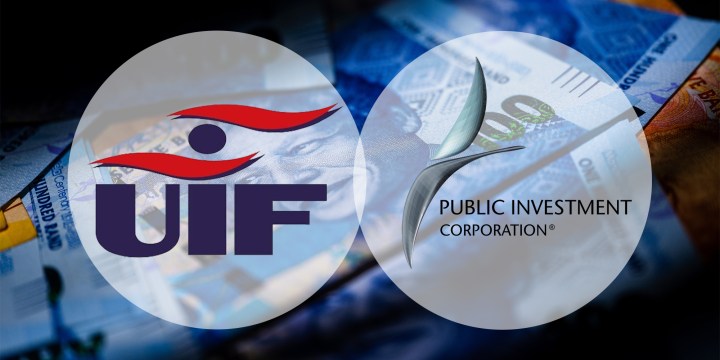ASSET MANAGEMENT
UIF committee raises questions around PIC’s investment strategy

The Investment Committee of the Unemployment Insurance Fund board has flagged several concerns around investment strategy with the Public Investment Corporation, which is responsible for managing the fund’s investment portfolio.
In a bizarre joint statement from the Unemployment Insurance Fund (UIF) and the Public Investment Corporation (PIC), the UIF investment committee raised concerns while stating that it was “satisfied” with the level of regular reporting and analysis from the PIC.
The UIF, which is the second-largest client of the PIC, accounting for 5.14% of assets under management, saw its investment portfolio grow to R135-billion by the end of March. A joint statement issued by the PIC and the UIF recently, however, notes that the PIC has not made any new socially responsible or unlisted investments on behalf of the UIF since 2019.
UIF Commissioner Teboho Maruping says the investment committee has ensured accountability from the PIC by closely reviewing the UIF investment portfolio, risks and controls.
The UIF investment committee chairperson, Ogalaletseng Gaarekwe, says although there are historic investments dating back as far as 2015, many of these investments were the subject of the investigation by the Mpati Commission of Inquiry and require remedial actions or steps to legally recover assets.
The UIF investment portfolio has 92.05% invested in domestic assets and the rest in foreign equities. Listed investments constitute 89.9% of the portfolio, with socially responsible investments making up 10.13%. The UIF’s higher exposure to domestic bonds and listed equities positively contributed to robust growth in the fund’s investments.
Gaarekwe says the UIF portfolio has largely recovered from needing to make an emergency sell-off in nominal bonds to finance the UIF Covid-19 Temporary Employment Relief Scheme (Ters) with R64-billion.
However, she adds that since inception the internal rate of return has been a negative 5.12% due to several developmental or impact investments in the fund’s unlisted portfolio underperforming or being in distress. The healthcare and retail sectors contribute to two-thirds of total impairments.
“The investment committee is satisfied with the work, and regular reporting done by a team of turn-around and value-add (Tova) specialists employed by the PIC to analyse and monitor these investments. Of the 12 unlisted investee companies in distress, three are in liquidation, while another three have been placed in business rescue. A further two are under legal dispute and the remaining four are being restructured and turned around,” Gaarekwe says.
Alongside sustainable financial returns, developmental or impact investments are designed to produce socioeconomic returns that include job creation, empowering and funding black firms, and providing essential infrastructure (housing, accommodation, healthcare services). Job retention and job preservation are priorities for the UIF and the PIC when investee companies become distressed, and the Tova team has done commendable work to minimise job losses and preserve value in some of the distressed assets.
Four property investments will be executed in the UIF portfolio in the current financial year and over the medium term. A total of R459-million has been earmarked for the construction of student accommodation that will provide 5,352 beds and state-of-the-art learning facilities in four tertiary education nodal points across South Africa. These construction projects will create thousands of jobs over the medium term and will produce lasting housing and education infrastructure for underprivileged university students.
R5-billion UIF Fund II
The UIF has partnered with the Industrial Development Corporation (IDC) to establish a R5-billion UIF Fund II which is being co-managed by the PIC. In the most recent round of funding, and building on the success of the UIF Fund I, the UIF Fund II approved investments totalling R3.8-billion to qualifying firms. Investments from both the UIF Fund I and Fund II include:
- R1.7-billion for 33 SMEs in transactions expected to create 5,310 jobs and preserve 7,278 jobs.
- R311-million spread across six investments into firms with 26% youth ownership that are expected to create 560 jobs and preserve 68 jobs.
- R1.03-billion split into 24 investments for companies owned and managed by women that are expected to create 4,602 jobs and preserve 7,293 jobs.
- R2.45-billion to go to 50 firms in the IDC’s Black Industrialist programme that are expected to generate 9,428 new jobs and preserve 17,833 jobs.
- R1.71-billion to go to 36 startups that are expected to create 6,856 new jobs. DM













 Become an Insider
Become an Insider
Comments - Please login in order to comment.